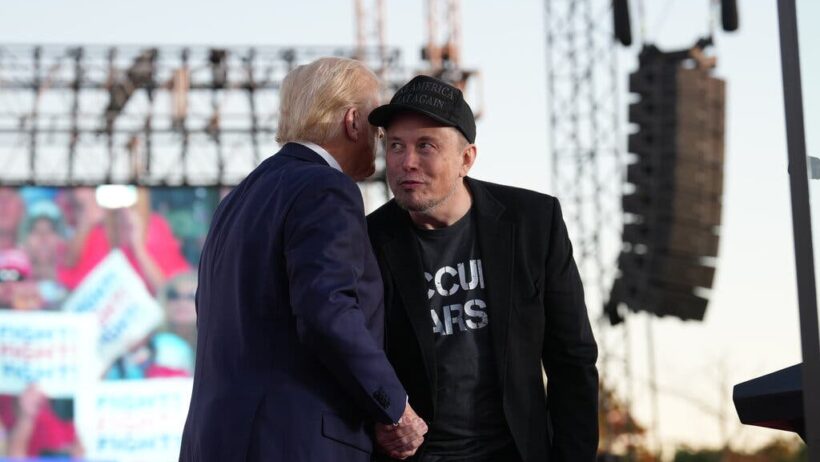Elon Musk, a titan of technological innovation, engenders a multifaceted discourse around climate change and global warming. His ventures, encompassing electric vehicles through Tesla and renewable energy via solar initiatives, inherently position him as a salient figure in the climate debate. However, the inquiry into whether Musk explicitly endorses the scientific consensus on global warming necessitates extensive examination of his public statements and business endeavors.
Initially, it is essential to delineate Musk’s contributions to environmental sustainability. Tesla, founded in 2003, embarked on a mission to expedite the world’s transition to sustainable energy. The electrification of transportation spearheaded by Tesla’s electric cars has substantially curbed greenhouse gas emissions within the automotive sector. Musk’s vision for sustainable energy extends beyond electric vehicles; it encapsulates the development of solar energy solutions and battery storage technology, particularly through SolarCity and the Tesla Powerwall. This holistic approach suggests a systematic belief in the necessity for a paradigm shift away from fossil fuels, which aligns with the broader scientific understanding of climate change.
However, scrutinizing Musk’s rhetoric reveals a complex narrative. Public statements concerning climate change have often oscillated between skeptical positions and fervent advocacy for technological solutions. For instance, Musk has occasionally downplayed the severity of climate change, which could prompt observers to question his alignment with mainstream scientific consensus. Yet, in his philanthropic efforts and business planning, he regularly affirms the urgent need to address climate issues through innovative technology.
One compelling factor in Musk’s philosophy appears to be his belief in the capacity of technology to resolve existential challenges. He has ardently championed the potential of renewable energy to not only ameliorate climate conditions but also to enhance economic frameworks. For Musk, the innovation behind electric vehicles is not merely a business venture; it is a clarion call to humanity, emphasizing that technological innovation can effectively combat ecological disasters.
Moreover, Musk’s ventures into space exploration through SpaceX reveal another dimension of his ethos. His initiatives, such as colonizing Mars, underscore a belief in the necessity of ensuring human survival beyond Earth. This futuristic vision raises an intriguing paradox: while advocating for planetary care through his Earth-centric projects, Musk simultaneously positions himself within an arena that contemplates humanity’s departure from the planet due to catastrophic climate failure. Such duality illuminates a profound tension in his worldview.
The interplay between skepticism and advocacy raises significant questions about the impact of Musk’s position on public perception of climate science. Notably, when prominent figures express reservations about climate change, it can translate into skepticism among the general populace. Thus, while Musk may not categorically deny global warming, his fluctuating stance may contribute to the cultural dissonance surrounding climate discourse. It suggests a necessity for leaders to articulate a cohesive strategy aligned with scientific findings to galvanize public consensus.
Despite this ambivalence, there are facets of Musk’s narrative that resonate with a growing understanding of climate urgency. His relentless drive to innovate renewable technologies evokes a sense of hope among environmentalists. By propelling electric vehicles into the mainstream and substantially investing in sustainable energy solutions, Musk has catalyzed a cultural shift toward greener practices. This evolution points to a vision that, despite personal doubts, acknowledges the fundamental reality of climate change and the critical role of technological advancement in addressing it.
Furthermore, the ethos of Musk is embedded in a larger societal context. The historical trajectory of climate science has been fraught with contention, especially amongst influential figures across various industries. Musk’s eclectic background, juxtaposed with his success, amplifies his voice in the climate debate. His influence reaches beyond mere commerce; it touches the political, cultural, and social dimensions of climate awareness. Musk’s engagements often inspire youth and innovators globally, prompting them to envisage viable solutions to climate challenges.
It is also pivotal to analyze Musk’s strategic collaborations and public endorsements of climate-related initiatives. The intersection of his companies with climate policies reveals a nuanced alignment with environmental agendas. For instance, Tesla’s energy products directly support governmental and international efforts to reduce carbon footprints. His participation in collective climate initiatives reflects a convergence of interests, merging innovative technology with global imperatives to combat climate change.
In light of these considerations, one could posit that Musk’s complex relationship with the issue of global warming embodies a deeper philosophical inquiry into humanity’s interaction with technology and environmental stewardship. His narrative suggests that the resolution of climate change is not solely a function of belief but rather an imperative that requires concerted action, innovation, and systemic change. The ambiguity of his personal views, intertwined with his corporate objectives, raises profound questions about the role of influential figures in shaping our environmental future.
In summation, Musk’s endeavors and discourses regarding climate change reflect a transformative intersection of skepticism, innovation, and proactive solutions. While he may not uniformly endorse every aspect of climate science, his actions and technological inventions bolster a narrative that addresses pressing ecological challenges. Understanding Musk’s multifaceted role in the climate discourse allows for a more nuanced appreciation of how influential figures can impact the trajectory of our response to global warming. Ultimately, the imperative remains clear: the pursuit of sustainable solutions must continue, transcending individual beliefs, to safeguard the planet for future generations.








